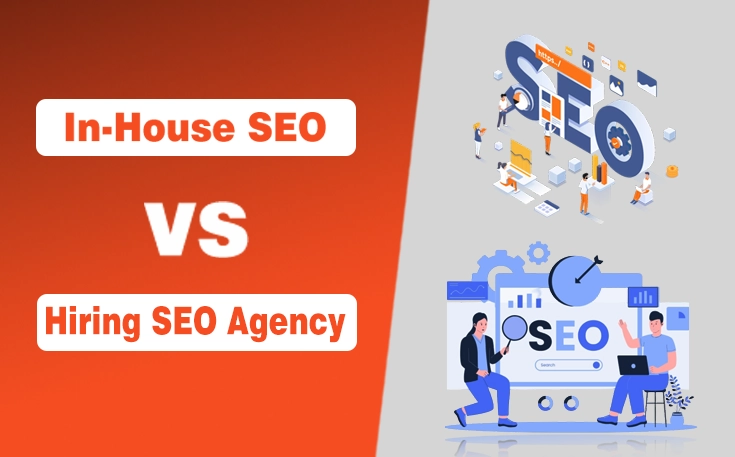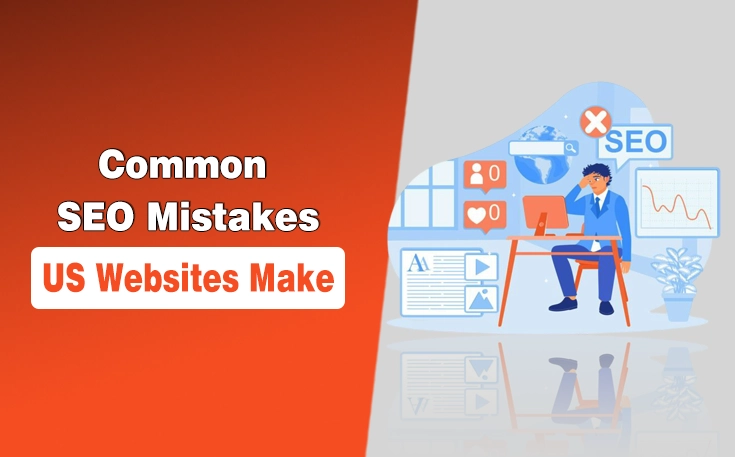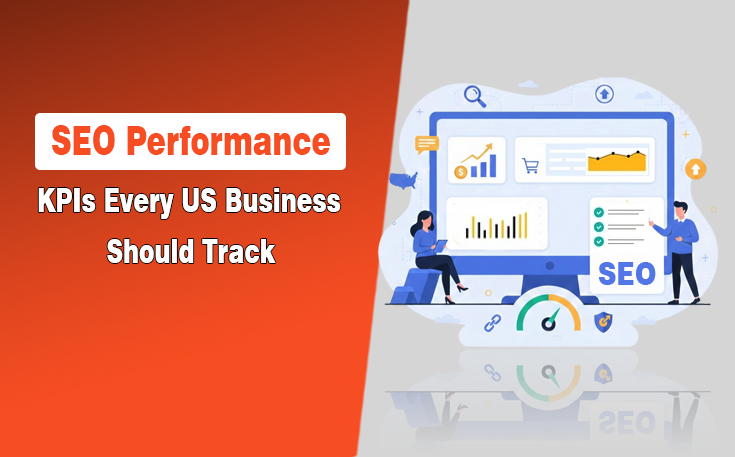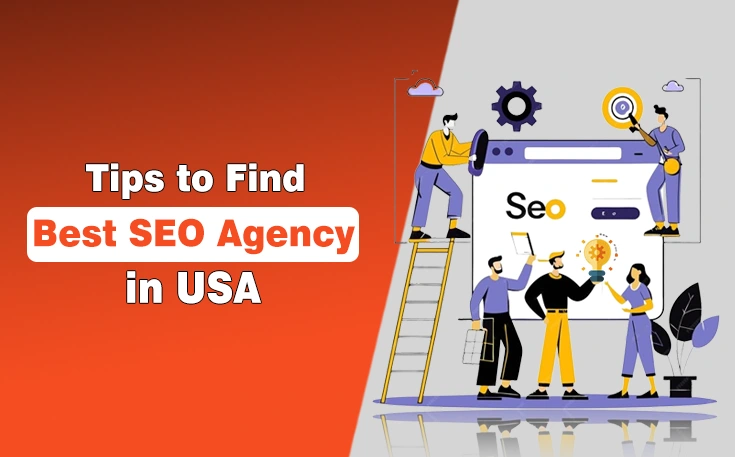Marketing a local business can decide whether a company grows or stays unnoticed. Small businesses often face the question of whether to handle their marketing in-house or hire an agency.
The answer is not one-size-fits-all. It depends on your goals, resources, and growth stage!
In this blog post, I will break down the pros, cons, and strategic considerations of both approaches to help you make a smart decision for your business.
Why Marketing a Local Business Matters?
Local businesses depend on visibility and trust. Without a clear plan, even the best services or products can get lost. Below are the main reasons why strong marketing makes a difference:
Building brand awareness in the local community
When businesses promote themselves regularly, they become more familiar to their neighbors. A well-known name builds trust, and that trust encourages people to buy. Local restaurants that post daily specials or hardware stores that sponsor a Little League team often see more support because people feel a personal link to them.
Reaching the right target audience with limited budgets
Most small businesses can’t spend like national brands. Careful targeting makes sure each dollar reaches the right people instead of being wasted on broad campaigns. For example, a local gym can focus ads on nearby zip codes instead of paying for reach across an entire state.
Still, many owners struggle with where to put their limited budget and how to design campaigns that actually work. In competitive markets like London, one option is to look for custom marketing strategies for London businesses that are designed by the top agencies in the area to maximize small budgets while still reaching the right audience.
Staying competitive with other small businesses
Customers often have many local options. Consistent marketing helps one business stand out through social media posts, ads, or community events. A coffee shop that posts new seasonal drinks on Instagram or a boutique that runs promotions through the chamber of commerce is more likely to stay top of mind when customers make choices.
Strong marketing keeps a business visible, improves loyalty, and encourages repeat sales.
DIY Marketing for Small Businesses

Many owners decide to run marketing themselves. This choice gives them full control, but it also brings some challenges.
Benefits of DIY Marketing
The benefits of DIY marketing are:
- Cost savings: Doing it alone avoids agency fees and fits small budgets.
- Flexibility: Owners can quickly change strategies without waiting for outside approval.
- Closer customer connection: Handling marketing directly helps owners see what matters to local consumers.
These advantages make DIY appealing for startups and small businesses that want to keep expenses low.
Common DIY Marketing Tactics
Owners often choose simple, low-cost methods that are easy to manage. Examples include:
- Social media platforms: Posting updates, promotions, and stories on Facebook, Instagram, or TikTok. A bakery might show photos of fresh bread each morning to encourage walk-in sales.
- Google Business Profile: Keeping hours, photos, and details current for better placement on Google Maps. A salon that adds photos of new styles and responds to reviews shows up more often in local searches.
- Email marketing: Sending short newsletters or promotions to past and current customers. Even a monthly update from a pet grooming shop with discounts can bring people back.
- Local newspapers and chamber of commerce: Reaching nearby readers and networking with other business owners. For example, a lawn care service might place a small ad before spring or join the chamber to connect with homeowners.
- Content marketing: Writing blog posts or sharing photos and videos that show products, services, or community support. A yoga studio could post short videos with simple stretches, which builds authority while giving free value.
These tactics, when employed on a constant basis, can help small businesses remain in the thoughts of local consumers. To further understand how small businesses can develop a sound strategy through digital media like social media, content, and email marketing, you can check the key strategies available for small business marketing.
Challenges of DIY Marketing
DIY also comes with limits.
- Owners need to spend a lot of time learning and applying marketing strategies.
- Access to advanced digital tools is usually limited.
- Mistakes or trial-and-error can slow results.
These issues often lead owners to consider professional help.
Hiring a Marketing Agency

For businesses that want faster results or more complex campaigns, hiring an agency may be the better path.
Benefits of Working with an Agency
Working with an agency allows businesses to enjoy the following:
- Expertise: Agencies bring skills from working across different industries.
- Advanced tools: They use software for digital marketing, targeting, and analytics.
- Stronger brand marketing: Agencies create campaigns that boost awareness through social media, ads, and content.
- Time savings: Owners can focus on running the business while experts manage campaigns.
These benefits often lead to faster growth and more polished marketing.
Services Agencies Typically Provide
Agencies usually provide packages built for local businesses. These may include:
- Google Ads campaigns: Reaching local consumers searching for products or services. A plumbing company can run ads that show up only when someone searches “leak repair near me.”
- Social media marketing: Managing content, ads, and customer interaction across platforms. An agency might design a full calendar of posts that highlight promotions, staff, and customer stories.
- Content marketing: Creating blogs, videos, or other materials that highlight expertise and build trust. For instance, an auto repair shop can publish articles about car maintenance tips that improve credibility.
- Email marketing: Designing professional emails with tracking for performance. Instead of sending plain text, businesses can deliver polished emails with branded graphics and clear calls to action.
These services make it easier for local businesses to compete against bigger players.
Challenges of Hiring an Agency
Agencies are not perfect for every situation.
- Their fees are higher than DIY, which can strain smaller budgets.
- Owners may feel they lose some control over daily decisions.
- Not every agency understands local needs, so picking the right one matters.
One way to avoid issues is to research agencies carefully, ask for local case studies, and start with a smaller contract before committing long term.
Comparing DIY vs. Agency: Which Is Best for Your Local Business?
The best choice depends on budget, goals, and how involved the owner wants to be. As a business owner, do you have the ability to allocate 5-10% of your sales towards marketing, like most businesses usually do to maintain their current revenue levels?
Key Factors to Consider
Business owbners must consider their:
- Business size and budget: Small businesses may lean toward DIY, while larger ones can afford agency support.
- Experience with marketing tools: Owners who know how to use social media or email platforms may find DIY easier.
- Goals and timelines: Fast growth often points toward agencies. Slower growth works fine with DIY.
- Level of involvement: Some owners want to stay hands-on, while others prefer to delegate.
Thinking about these factors helps clarify which path fits best.
When DIY Works Best
DIY marketing fits certain situations, such as:
- Startups and very small businesses with limited budgets.
- Owners who enjoy testing new tactics themselves.
- Close-knit communities where personal relationships matter more than polished campaigns.
In these cases, DIY provides steady growth while keeping costs low.
When an Agency Makes More Sense
Hiring an agency works better when:
- A business wants to grow quickly.
- Competition in the area is strong.
- The owner prefers to focus on operations while experts manage campaigns.
Here, the higher costs often pay off with stronger results and wider reach.
Conclusion
Marketing a local business requires a choice between DIY methods and agency support. DIY saves money and gives direct control, but it takes time, creativity, and consistency. Agencies bring expertise, tools, and faster growth, though at a higher cost and with less daily involvement.
It usually comes to a matter of balance. One can begin with DIY in a small shop, and then hire an agency as the sales will increase. A more established company can hire an agency to stand out in a competitive market. In any case, it is all about achieving the same end, which is to target local buyers, earn their trust, and establish itself as a trusted member of the local community. Any local business can be unique and prosperous with the appropriate strategy.
Need custom app with amazing features?
Get a Quote




